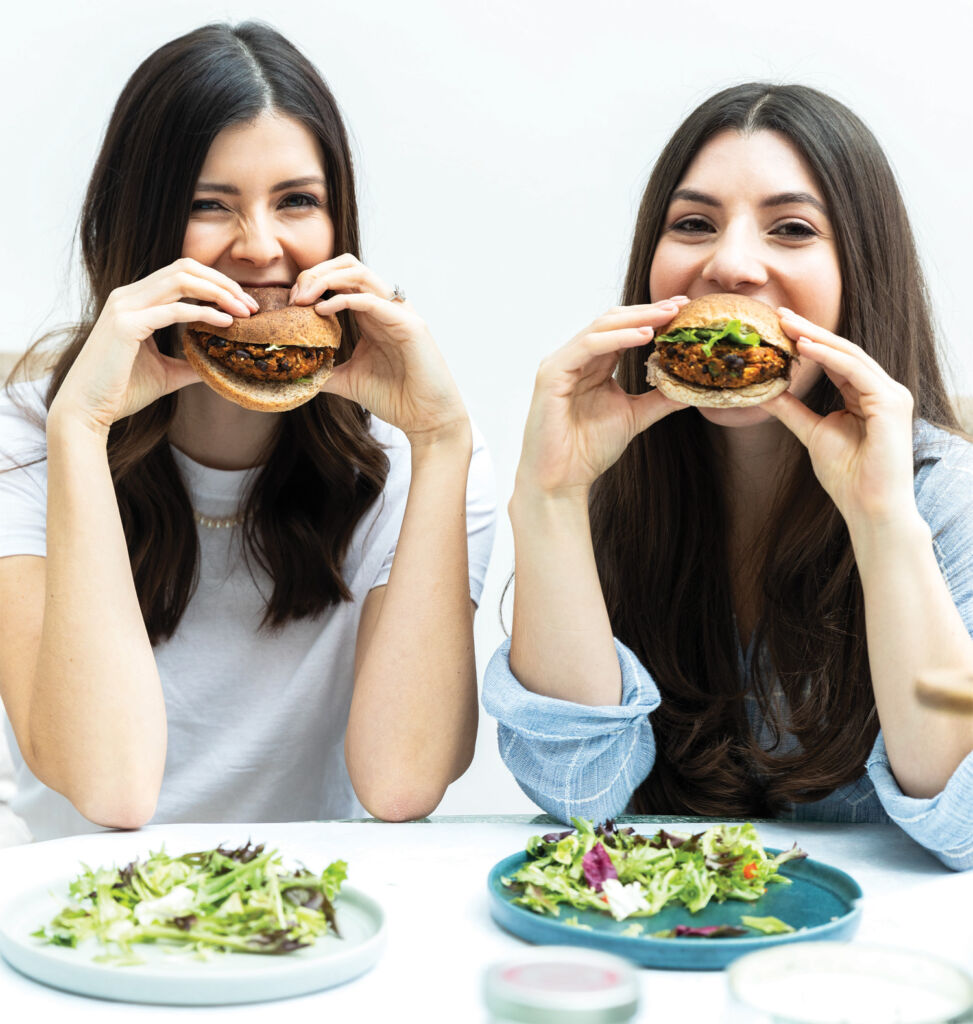
Did you know that eating fat doesn’t make you fat? Carbs don’t increase weight gain or gluten can be a good thing in your diet? To help to dispel some of the countless food-based myths out there, Sophie Bertrand and Bari Stricoff the co-authors of Forking Wellness have compiled a list of ten facts about nutrition, and after reading them, you’ll never look at food in the same way again!
If you’re going to publish a book with a title containing the words ‘Forking Wellness’, you’ve either got an outrageous sense of humour, or you truly know what you’re talking about. Fortunately, the books co-authors Sophie Bertrand and Bari Stricoff have both and are indeed experts when it comes to nutrition!
Their new book is packed with myth-busting facts and helps to destroy many people’s wrongly held assumptions surrounding nutrition and all the while helping to boost one’s knowledge bank.

Below are ten facts from Sophie and Bari that should encourage you to review what your consuming and ignore what others’ outside of the know’ are saying.
- Fat doesn’t make you fat.
It’s estimated one-third of our energy intake should come from fat, more so from unsaturated fat sources, like nuts, seeds and avocados, but saturated too. Saturated fats are usually found in animal products and are good to include as part of a well-balanced diet. Many people don’t include enough fats in their diet, particularly fatty acids, which are often referred to as omega-3s. - You don’t have to count calories to be healthy.
Overall, your intake should consist of high-quality protein, healthy fats, and whole-grain carbohydrates with plenty of fruit and vegetables. There’s no counting (macros or calories) involved, and there are definitely no restrictions. - Gluten is just a protein. You don’t have to eliminate it to improve your health.
Only 0.5% of the population medically require a gluten-free diet. It’s important to know gluten is just a protein found in wheat – it’s not toxic and does not lead to adverse health effects. Basically, gluten-free is not synonymous with healthy. - Cheat meals can create an unhealthy relationship with food. If you feel the need to cheat on your eating style, it’s not sustainable.
Incorporating flexibility into your meals will allow you to skip out on the guilt when you eat something considered a ‘cheat’ snack or meal. - Your kidneys & liver will kindly detox your body for you – no need for lemon water and celery juice.
Ensuring fruit and vegetables are being consumed regularly is imperative because they provide essential vitamins and minerals linked to improved health. No food or food substance actually has the ability to detox or cleanse the body. Hurrah for livers and kidneys! - Smoothies are more nutritious than juices – don’t strip your fruit and vegetables of fibre!
Removing the pulp removes the fibre! And if juices or smoothies aren’t enjoyed, consuming the whole fruit provides more nutritional impact. - Carbs don’t cause weight gain. In fact, fruit, vegetables, and dairy products break down into carbohydrates as well.
It is thought the brain uses 20% of all energy needed by the body, and the glucose from carbohydrate-containing foods provides adequate fuel for the brain to function properly. Good sources for carbs include bread, whole grains, starchy vegetables (potatoes, butternut squash, parsnips and peas, for example.) and fruits. - Hunger signals are a good thing – don’t ignore them. When your body needs fuel, it will let you know.
Diets encourage us to ignore hunger when, in fact, these instincts are really positive and important to embrace. If you override those hunger pangs and restrict food, your body is likely to react with the urgency to binge. We need to be able to tune in to our hunger signals so we can respond. - Digestion isn’t dictated by the time of day. Your body will not digest nor store food differently at 6:01
Our digestive systems work just as hard in the morning as they do throughout the day! - Increasing your intake of plant-based foods is not just beneficial for the environment. It also enhances your overall health.
According to Public Health England (2018), only 31% of adults, 32% of people aged 65-74 years old and a mere 8% of teenagers meet the 5 A Day recommendation for fruit and veg consumption. Eating more fruit and veg has been shown to lower blood pressure, maintain a healthy heart, help prevent Type-2 Diabetes, decrease cancer risk, and so much more.

Forking Wellness – Where and how?
Forking Wellness: Your No-Nonsense Guide to Health and Nutrition by Sophie Bertrand & Bari Stricoff (Meyer & Meyer) is out now in paperback and ebook. It is available for purchase via Amazon, and from leading booksellers such as WHSmith, Waterstones etc.
Read more food-related articles and reviews in our dedicated section here.
![]()




You must be logged in to post a comment.